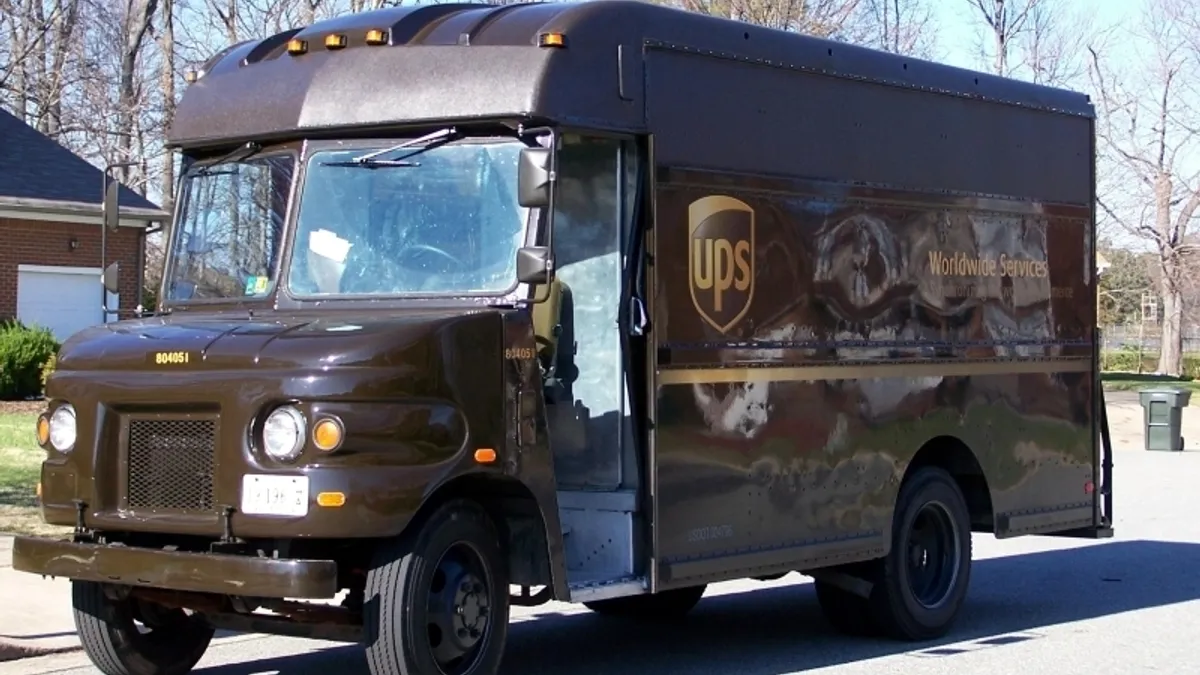Dive Brief:
- Despite strategically planned peak season rate rises, UPS has become overwhelmed by deliveries and has warned of some delays, The Wall Street Journal reported Tuesday.
- Though the delays are relatively minimal — one or two days — they're occurring despite structured logistics planning, such as new warehouses, seasonal workers and automation, not to mention three more Boeing 747-8s, the largest commercially available freight aircrafts.
- UPS is pressing drivers into additional service, including raising the number of hours drivers work to 70 hours over an eight-day period, up from 60 over seven days. While Teamsters president James Hoffa has expressed concern, UPS has countered with full over-time pay compliance.
Dive Insight:
Back in September, UPS began planning its peak season hiring surge, spreading extra hands across its busiest markets. Anticipating roughly 30 million packages daily for 17 of the 21 shipping days before Christmas, or approximately 510 million parcels in less than a month, the 3PL raised fees for dates expected to be unusually hectic.
But the best laid plans could not prevent delays, which unfairly reflect more on shippers than on UPS.
"The strong kick-off to the holiday season has given the industry a much-needed shot in the arm, but recent delivery issues could find retailers being blamed for late gift arrivals," said Tushar Patel, CMO of Kibo Commerce.
"As the holidays quickly approach, retailers need to make sure they are offering multiple fulfillment options, including those that don't depend on carrier delivery such as buy online, pickup in-store (BOPIS)," he told Supply Chain Dive. "The ultimate winners of the holiday season will be those with strong fulfillment strategies that are sought after by busy shoppers and create loyal, repeat customers.”














